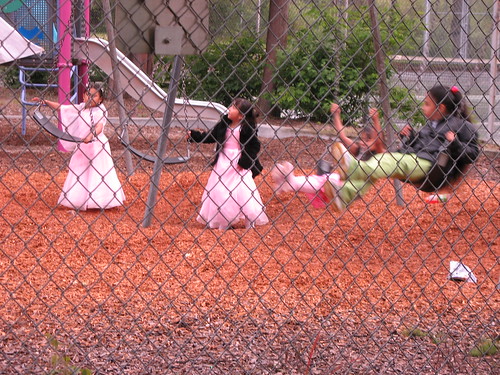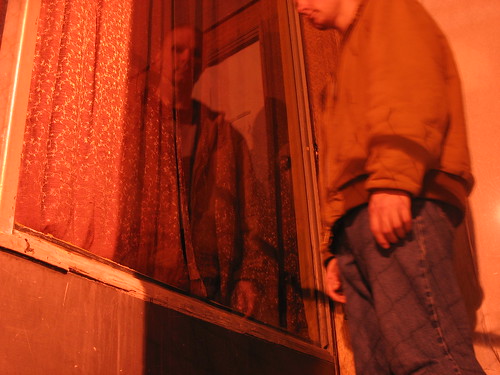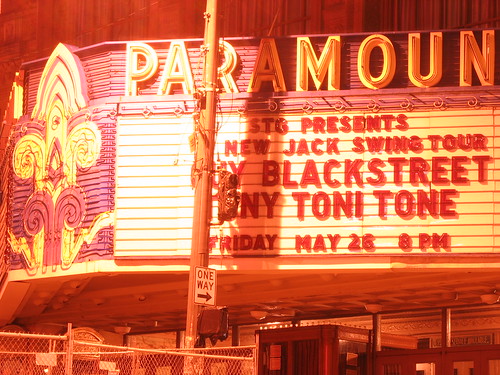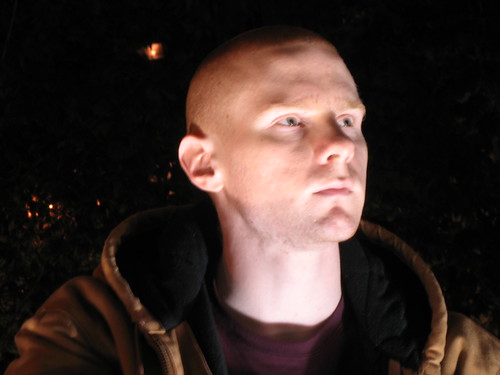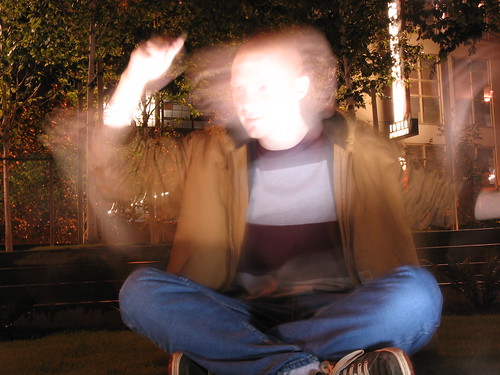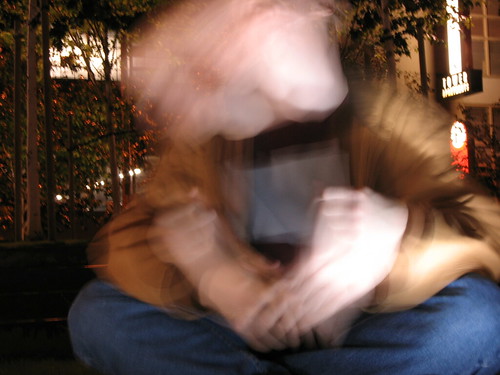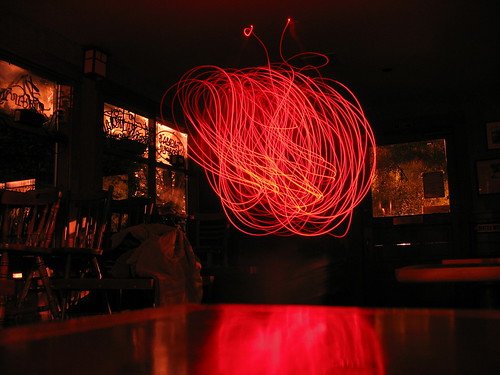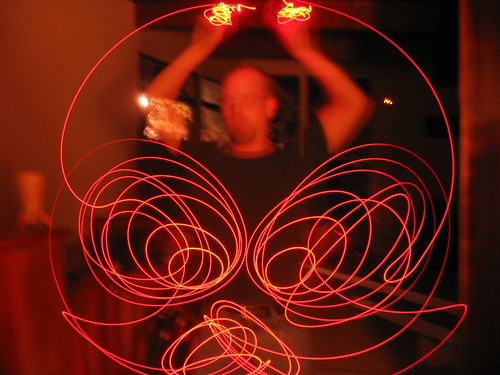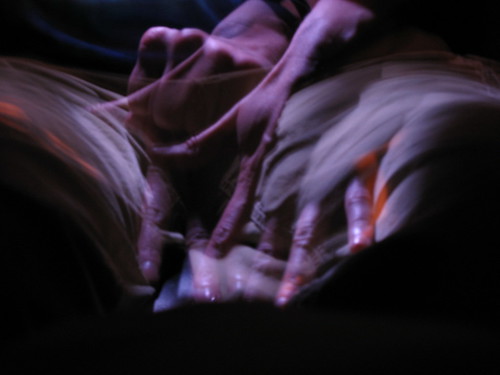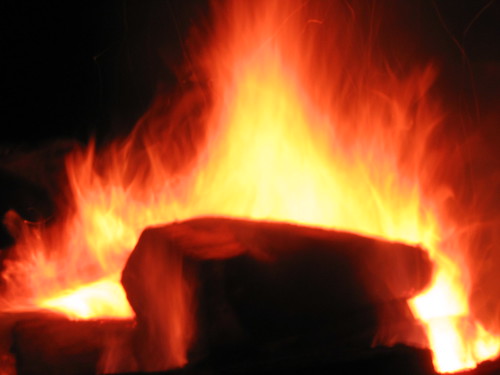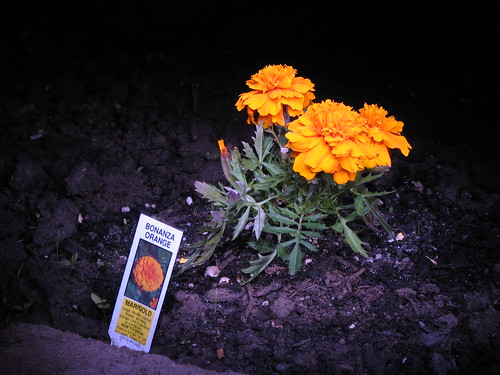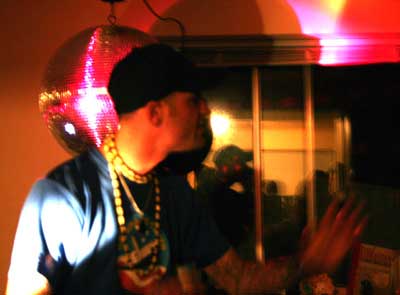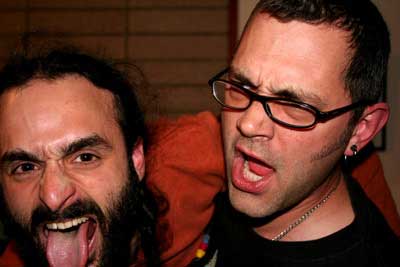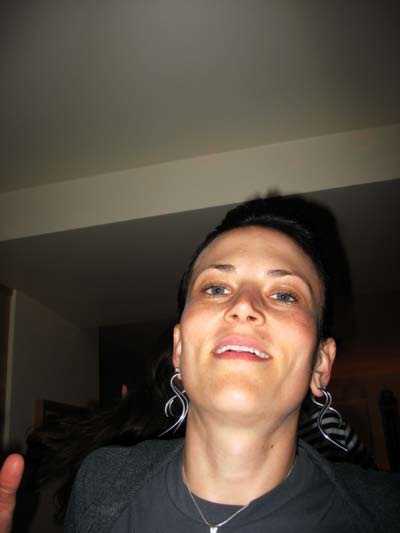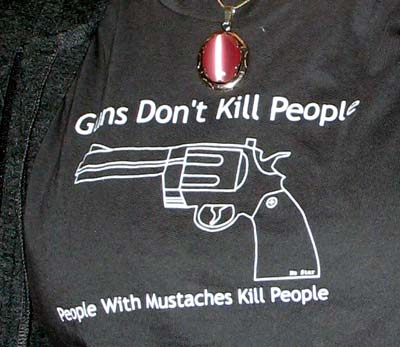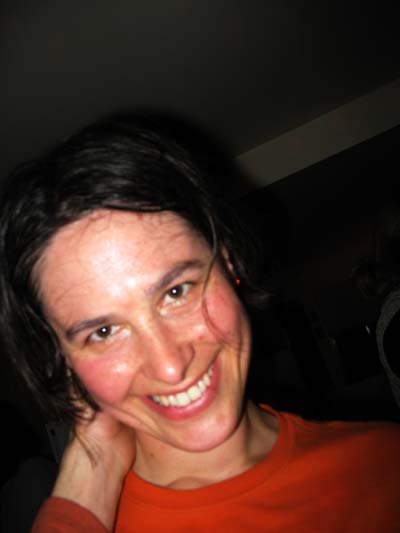I have a friend and fellow dharma practitioner who is living abroad in Nepal. For a
while now he's been sending out these colorful, sweet travelogues (only in Email, he
doesn't have a blog yet).
This latest one was so good and so topical that I asked him if I could reprint it in
the tinyblog. He said that would be fine.
I had heard about the political activity that's
been going on in Nepal, that's recently coming to a head, but it's amazing to
hear a first person perspective on what that looks like from the ground.
Mark's Story:
Yesterday was Independence Day in Nepal. Or so it seemed to me, and I told this to
Parvoti, the Nepali girl who massages my back after my acupuncture treatments with
Fatima, the Muslim Chinese needle artist who many of us at Pullahari monastery visit
for help with our various (mostly) stomach ailments. Parvoti massages like you would to
a soften up a piece of errant beef, kind of rough and haphazard, across the grain, but
somehow it works.
Anyway I said, "Happy Independence Day," thinking I might get at least a smile from
her. She looked at me quizzically: "Why happy?" We got into a discussion of America and
"Independence." She asked, "Does America have King?" I said no, but we used to and
threw him out. She said "Iraq and Nepal very bad country," and then I worked to
dissuade her of this point.
Nepal isn't a bad country at all. It's been unusually peaceful, considering this
revolution. People have died, but compared to what goes on in the Middle East or during
your average school shooting in the US, not many. Over the past weeks there have been
bandhs on the part of the Maoists (meaning, you can't leave the valley by road, and
might even get into trouble in the valley), or strikes by the 7 political parties
(meaning, you're not supposed to work), or curfews by the King (meaning, don't go
outside or you risk getting shot). And through it all more and more people have been
descending on the place from villages elsewhere in the country, so that people in the
streets protesting have swelled recently to a half-million or so, all of them ignoring,
especially, the curfews imposed by the King.
A few days ago the King, looking like the saddest of all sad sacks, and flanked by
video-imaged flags, so that he appeared to be the host of a political kiddie show for a
minor cable station, made an arrogant speech in which he seemed to understand that he
still held the cards but was magnanimously deigning to offer a few, they not being
trump. This of course angered everyone, doubling the amount of protesters the next day,
who by now were no longer interested in a constitutional monarchy or even a ceremonial
monarchy, but perhaps would prefer the King's head. There had earlier been talk in the
Himalayan Times of which path to take with the monarch, England's or France's, and the
French tack was winning out.
(A sidenote here: As this whole thing has been going on, I've been more and more
puzzled as to why in God's name the king, with his great wealth and ability to escape
to Switzerland, would still remain here as the anger has built and his inability to
solve the enormous problems of poverty and lack of education and infrastructure and
pollution and Maoists and everything else have manifested. And I've come up with a few
ideas: One is that it's almost impossible to relate with the sense of entitlement of
someone like him, especially because of the Hindu caste system, in which so many of the
population are felt to be, by nature, not worth listening to. So even in general if
it's hard for the powerful to give up power, in this case it might be like asking the
dog's owner to put the leash on his own neck and give the lead to the dog. And the
people themselves, since they tend to accept the caste idea too, tend not to think
they've got the genetics to rule. Another thing is that it's not just the King, but the
wealthy families, especially the Rana family, so I've read, who surround the King and
into which he's intermarried, that are the source of trouble. If the King goes down his
vast network of cronies goes down, so they're all whispering bad advice in his ear. And
finally, in 1846, I think it was, the patriarch of the Rana family killed all the
intellectuals and the nobility in a huge massacre at a party in Durbar Square in
Kathmandu, wiping out the people who might have produced a group of founding fathers
educated and benevolent enough to create a fairer system. But instead power was further
concentrating in the hands of a few families, which then the caste system has cemented
further.)
So anyway, there was to be a massive demonstration on the 25th in response to the
King's intransigence, yesterday, and who knows what after that, perhaps a push to storm
the palace. I didn't have a ticket out yet; my travel agent having been gone for the
week. As collateral that I wouldn't go elsewhere he had the last bit of my cash and so
I was borrowing, but the other Westerners were running out of money because the cash
machines were also running out of money, since vehicles were not allowed on the roads
to fill them. So early morning on the 25th before the curfew was to officially begin,
Deanna and I set out on foot for an hour's walk to Thamel, the tourist area in the
heart of Kathmandu.
Deeanna is an Australian who I'd met at Pullahari, a good friend now, in her late 50s,
but who still didn't particularly like it when one Nepali on the way mistook her for my
mother. We had some breakfast at Northfield's and then I was actually able to get some
cash from my VISA card, so I felt great. Meanwhile the rolling metal doors were
descending on all the storefronts as people prepared for the curfew.
Then the curfew began at 11 a.m. and so we had to get indoors someplace. We found a bar
that was playing "Hitch," which turned out to be an entertaining way to spend a couple
hours. Especially entertaining was the "English" subtitles for the movie, which seemed
to be written by an Asian with English as a 5th or 6th language. Literally every other
sentence made no sense. But I had a beer, so I've forgotten the words.
At 5 p.m. (curfew over at 6) we began to walk back to Boudha. The streets were utterly
deserted except for soldiers and armored personnel carriers. They waved us two whities
on, but would have given trouble to Nepalis. After an hour we got to Chabahil, close to
Boudha, its streets covered with the sooty remains of many tire fires. In the distance
we could see a crowd of protesters and in front of us, the army with batons and shields
and some rifles making their way toward the crowd. Deeanna wanted to climb a tree to
get out of the way in case shots were fired, but it seemed safe enough to me and
anyway, the army would soon be going back to wherever they go because the curfew was
about over.
Most of the soldiers were on the main street to our right, the protesters far in front
of them. So we started walking down an alternate route on the left with fewer soldiers.
But we didn't get far before the air started to get tense, and suddenly a group of 30
or so soldiers seemed to materialize out of nowhere and started hiking quickly back
toward us. The leader looked like he was at the limit of his tolerance with anything,
and for the first time I felt a little scared, like he might ignore the precious color
of my skin and start beating me anyway, so we turned around and took a quick right down
an alley to avoid them. We went 20 yards and then, oops!, there was a crowd of
rock-throwing youths another 30 yards in front of us. And then turning into the alley
behind us were the army. We'd actually gotten between the rock throwers and the army.
How silly. How very unfortunate.
There was a driveway to our right, an indentation of a few feet and then an iron gate.
We walked to it and stood against the gate, watching stones fly by. Hmmm, what to do,
what to do. Not the place to be, no siree. Deeanna seemed a bit tense and I put my hand
on her shoulder, said not to worry. She looked around with a rather blank expression.
Actually I felt better than I had when the army was walking angrily towards us; at
least we weren't -- directly -- in the line of fire.
And it went okay, because here I am writing this. There was a lull. The army was hiding
behind the left and right entrances to the alley, occasionally coming out. One was
loading his tear-gas rifle. Time to go! We got out, walked fast past the army, not
looking at them much, busy busy, places to go people to see, then continued down the
road towards Boudha, passing throngs of people, some happy, some angry, and many
burning piles of garbage, until we returned to our safe little guesthouse, the Dragon
Inn, owned by Tibetans who don't seem to have a care or a clue about what's happening
in the country, but who make a really good yoghurt that I like to have with muesli and
banana.
So that was our little revolution adventure, enough for me. I was really wondering what
would happen the day after, as was everyone. And then the King broke the tension. That
night he gave up, it seems. In an address at 11:30 p.m., long long past Nepali bedtime,
he apologized for the deaths of protesters, affirming that the people were in charge
and that the Parliament he dissolved in 2003 now had power again, that they should
elect a Prime Minister on Friday. And although he didn't say it exactly, it's been
interpreted by the public to mean that, whatever the Parliament decides about his role,
which at this point seems to be a ceremonial function or a free plane ride out, he'll
accept.
There was mass celebration on the streets all night, except for the Maoists, finicky as
they seem to be, who have called it a ruse. Yes, the Maoists, who over the past 15
years having been shutting down schools and kidnapping kids and killing people and who
the political parties seem to think can now be brought into the fold. Perhaps it's
because, um, according to the dictionary at least Maoism and democracy don't go
together, that the US consulate has still packed it in and gone and has told all
Americans to do the same or forget about help.
Actually today it doesn't feel dangerous here, and today's news is that the Maoists
have called a temporary ceasefire to assess whether the 7 parties are amenable to them,
but momentum is carrying me out of here. My plane is supposed to leave tomorrow at 1:30
pm., just after the new Parliament will have started their first session. I'll go to
Bangkok. Not sure how long I'll be there. Enough time to, hopefully, get my digestive
tract back in fine shape.
I look forward to returning the US after that. May it be peaceful, clean, spacious! I
hope you are all in good health, happy, and at ease.
Love,
Mark


